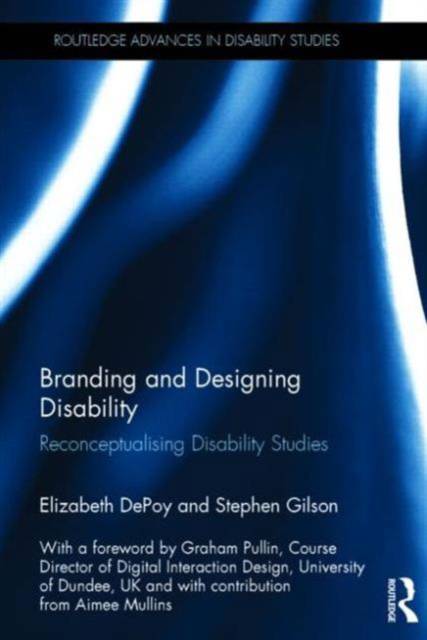
- Afhalen na 1 uur in een winkel met voorraad
- Gratis thuislevering in België vanaf € 30
- Ruim aanbod met 7 miljoen producten
- Afhalen na 1 uur in een winkel met voorraad
- Gratis thuislevering in België vanaf € 30
- Ruim aanbod met 7 miljoen producten
Branding and Designing Disability
Reconceptualising Disability Studies
Elizabeth Depoy, Stephen GilsonOmschrijving
Over the past fifty years, design and branding have become omnipotent in the market and have made their way to other domains as well. Given their potential to divide humans into categories and label their worth and value, design and branding can wield immense but currently unharnessed powers of social change. Groups designed as devalued can be undesigned, redesigned and rebranded to seamlessly and equivalently participate in community, work and civic life. This innovative book argues that disability as a concept and category is created, reified, and segregated through current design and branding that begs for creative change.
Transcending models of disability that locate it either as an embodied medical condition or as a socially constructed entity, this book challenges the very existence and usefulness of the category itself. Proposing and illustrating creative and responsible design, DePoy and Gilson include thinking and action strategies that are useful and potent for "undesigning", redesigning, and rebranding to meet the full range of human needs and to enhance full participation in local through global communities. Divided into two parts, the first section presents a critical examination of disability as a designed and branded phenomenon, exploring what exactly is being designed and branded and how. The second part investigates the redesign of disability and provides principles for redesign and rebranding illustrated with examples from high-tech to place-based sustainable strategies.
The book provides a unique and contemporary framework for thinking about disability as well as providing relevant design and branding guidance to designers and engineers interested in embodiment issues.
Specificaties
Betrokkenen
- Auteur(s):
- Uitgeverij:
Inhoud
- Aantal bladzijden:
- 302
- Taal:
- Engels
- Reeks:
Eigenschappen
- Productcode (EAN):
- 9780415635387
- Verschijningsdatum:
- 25/06/2014
- Uitvoering:
- Hardcover
- Formaat:
- Genaaid
- Afmetingen:
- 155 mm x 234 mm
- Gewicht:
- 557 g

Alleen bij Standaard Boekhandel
Beoordelingen
We publiceren alleen reviews die voldoen aan de voorwaarden voor reviews. Bekijk onze voorwaarden voor reviews.











